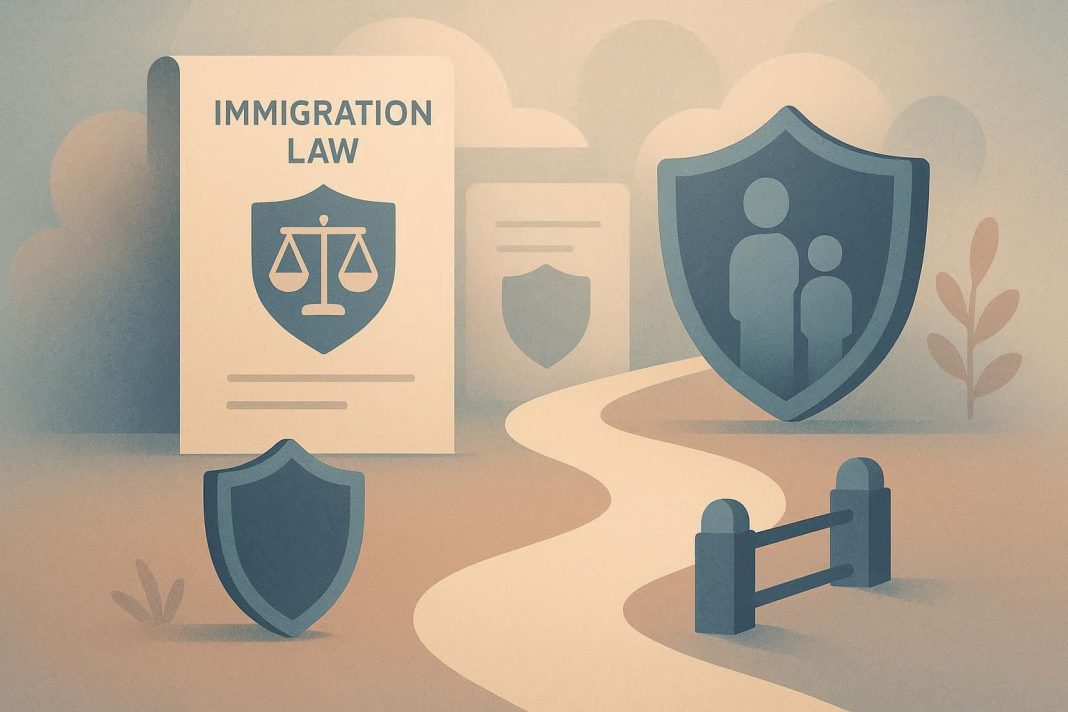The ACLU of Virginia has filed a major class action lawsuit accusing U.S. Immigration and Customs Enforcement (ICE) of unlawfully detaining children who already have legal protections against deportation. The lawsuit targets Virginia minors who have applied for or received Special Immigrant Juvenile Status (SIJS), a status Congress created to protect children who entered the U.S. after abuse, neglect, or abandonment.
ACLU Files Class Action Against ICE in Virginia
The ACLU of Virginia submitted the case, titled Sarmiento et al. v. Crawford et al., to the Alexandria division of the U.S. District Court for the Eastern District of Virginia. The lawsuit names four minors who have applied for or received SIJS as plaintiffs and seeks relief for other children in similar situations.
The ACLU claims that ICE is violating federal law by treating these protected minors like ordinary noncitizens subject to mandatory detention. As a result, ICE is holding children in facilities in places such as Farmville and Caroline without providing bond hearings.
ICE agents smash car window, point guns at family with 1-month-old baby in Colorado
Legal experts argue that this approach conflicts with the intent of SIJS. The status ensures that minors cannot safely return to their home countries and have a legal path to remain in the U.S. Traditionally, these children were not subject to long-term detention. The ACLU lawsuit contends that current ICE policy under the federal administration is reversing this practice, classifying SIJS youth as “arriving” noncitizens, which triggers mandatory detention despite existing legal protections.
Details of SIJS and Legal Protections
Congress created Special Immigrant Juvenile Status nearly forty years ago to shield children who suffered abuse, abandonment, or neglect. The process begins with minors being placed with vetted guardians or sponsors. State judges then determine that these children cannot safely return to their home countries. Once approved, minors must wait for visas to adjust their status before applying for citizenship.
SIJS provides strong legal safeguards for minors, including protections under the Immigration and Nationality Act, anti-trafficking laws, and constitutional due process. The lawsuit emphasizes that ICE’s current detention practices ignore these protections, leaving children locked in facilities even though the law intends for them to have a safer and more stable path to legal residence.
USCIS reveals 275 cases of suspected immigration fraud in Minnesota operation
Recent trends have raised concerns about the treatment of immigrant minors in Virginia. Public protests in Richmond in August highlighted opposition to local cooperation with ICE, particularly after reports of “masked, plainclothes” detentions. Data from these facilities indicated that about 80% of detainees were classified as posing “no threat,” with no criminal record, yet they remained in custody.
In Chesterfield County, ICE operations at courthouses drew significant criticism, with multiple arrests in a single day, including individuals attending routine traffic hearings. Critics described these actions as harsh and disruptive, impacting people who were not considered dangerous offenders.
Broader Context and Related ACLU Legal Battles
The ACLU of Virginia’s lawsuit is part of a larger national conversation about how immigrant minors are treated in the U.S. Similar legal challenges have emerged in other states, such as California, where attorneys have criticized conditions in facilities controlled by Border Patrol, calling them “prison-like” and unsuitable for children. Federal courts have repeatedly upheld the Flores Settlement, which prohibits indefinite detention of minors and sets minimum standards of care for youth in custody.
Recently, U.S. Citizenship and Immigration Services (USCIS) rescinded a policy that provided deferred action to SIJS recipients stuck in visa backlogs. This decision left tens of thousands of minors vulnerable to detention or deportation despite previously granted protections. A related class-action lawsuit in New York could potentially impact as many as 150,000 SIJS recipients nationwide, highlighting the widespread nature of the issue.
In Virginia, the ACLU, with the assistance of other legal teams, is seeking injunctive relief to grant bond hearings and secure the release of minors with SIJS. If the court rules in favor of the plaintiffs, it could force ICE to change how it handles these youth across the state and possibly influence practices nationwide.
The lawsuit underscores the tension between federal immigration enforcement and state-level protections for vulnerable children. It raises questions about how agencies implement policies affecting minors who Congress specifically intended to protect, bringing national attention to the rights and treatment of immigrant youth in the U.S.
